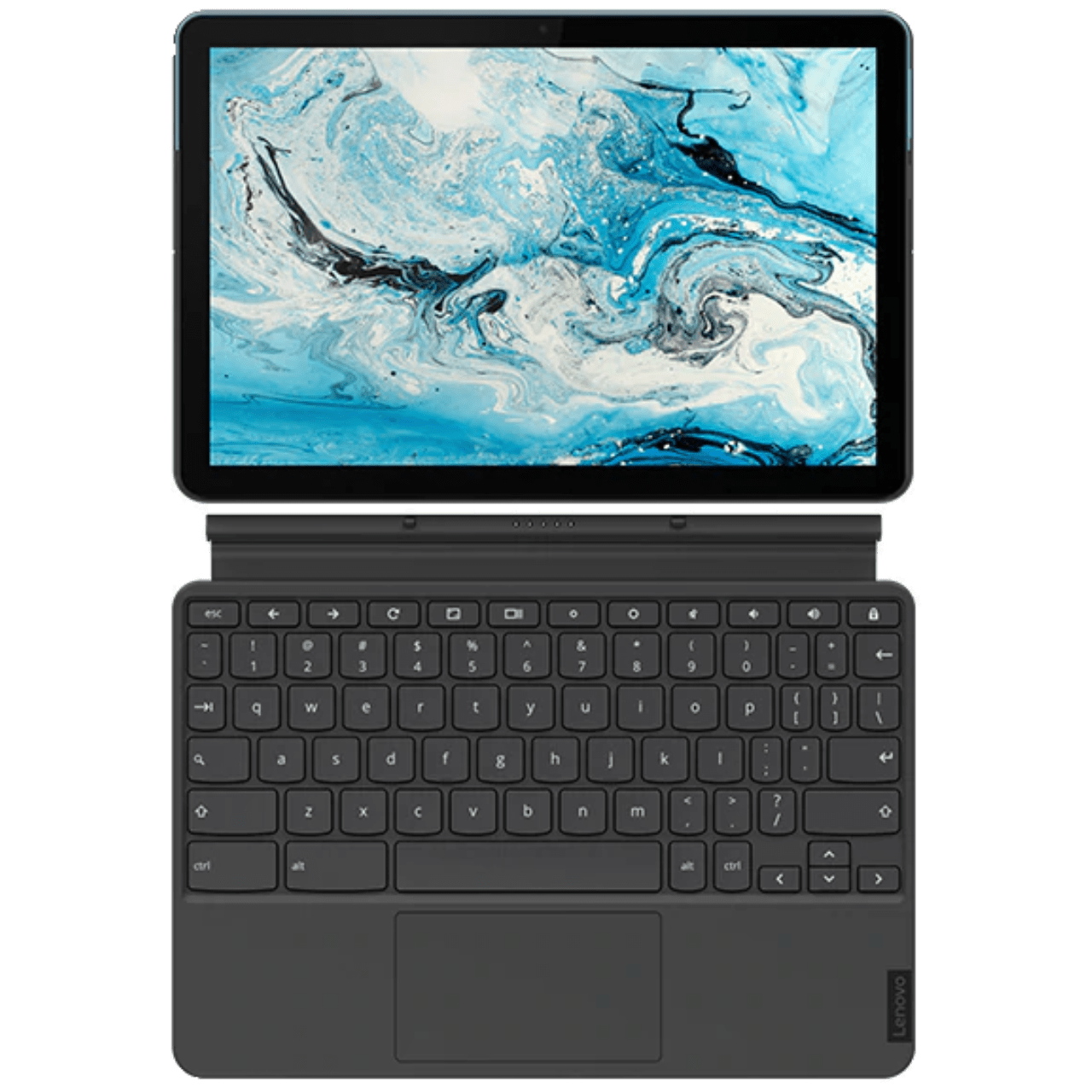
Since you have access to the Google Play store, I stuck to Android games for testing, but the Duet could be paired with Google's Stadia controller and service. It would snap back and otherwise perform well, even while gaming.

That said, performance would only get laggy for a few seconds here and there, both on its own and when connected to an external display. Using the Cog system viewer app, the Duet seemed to be using most of its memory most of the time. I was a little concerned about having only 4GB of memory in this thing. With no card slot for expansion and only $20 separating the two, you should go with the 128GB version if you can. Inside is a Mediatek octo-core Helio P60T processor, 4GB of memory and either 64 or 128GB of eMMC flash storage. However, if you tend to drag your palms while typing, you can likely look forward to some cursor jumpiness and accidental text selection. The keyboard isn't backlit, which isn't uncommon for cheaper Chromebooks or detachable keyboards. I found the apostrophe key particularly frustrating: I simply couldn't seem to hit it, and instead repeatedly hit the Enter key. The keyboard feels reasonably good for a tablet cover, but Lenovo cut down the size of keys on the right side. For example, while taking notes with the pen, the page would regularly resize and move if I didn't keep the side of my hand off the display. l tested Lenovo's pen with it and it worked well, but there's seemingly no palm rejection. Also, the tablet supports USI active pens for writing and drawing on the screen. The keyboard connects with pogo pins and magnetically attaches with a solid satisfying snap. It's a nice display with a 400-nit brightness, which helps with the reflections off the glossy screen. The Duet is built around a 1,920x1,200-pixel resolution display with a 16:10 aspect ratio, so you have a bit more height for work. It's essentially a smaller, albeit less powerful, Pixel Slate that makes more sense for more people with a price more in line with what people expect a Chromebook to cost. It also costs much less than the Go (including the newer Go 2), starting at $279 for a 64GB version or $299 for one with 128GB of storage. Unlike Microsoft, though, Lenovo includes the keyboard. Like the Go, the Duet is a 10-inch tablet with a detachable keyboard and touchpad.

If you're familiar with other small two-in-ones like the Duet you might think this is essentially a Chrome version of the first Microsoft Surface Go, and you're not wrong. Google has added to Chrome OS's support for tablets, too, with new touch gestures and a tablet mode for the Chrome browser making this slim, small two-in-one feel like a hybrid of the desktop side of Chrome and tablet side of Android more than earlier Chromebook two-in-ones.

With Android apps available on Chromebooks, lightweight tablets with a detachable keyboard like Lenovo's IdeaPad Duet Chromebook make more sense.


 0 kommentar(er)
0 kommentar(er)
